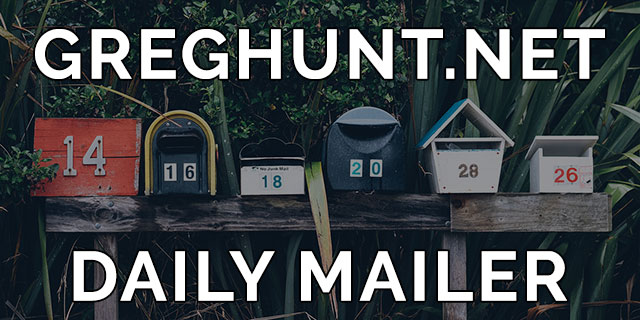
https://www.abc.net.au/news/2019-06-01/every-aussie-should-adopt-a-totem/11116978
Post of the Day
Adopting an Indigenous totem could be a simple way to care for country
Australians are being encouraged to adopt a totem to protect plants, animals and landscapes.
Today’s Celebration
Republic Day – Italy
Botev Day – Bulgaria
Father’s Day – Lithuania
Father’s Day – Switzerland
Coronation Day of Fourth Druk Gyalpo – Bhutan
Yom Yerushalaim (Jerusalem Day) – Israel
Coastal Cleanup Day – Russia
Reconciliation Sunday – Uniting Church
Climate Change
Youth climate activists set for nationwide rallies ahead of landmark case
Young people in the US to hold day of action on Saturday highlighting lawsuit as youth-driven climate movement grows
Research brief: Climate change is already affecting global food production — unequally
UMN researchers found that climate change is affecting different areas of global food production differently.
Community impacts from extreme weather shape climate beliefs
Recent studies suggest that people who experience severe weather are more likely to believe in and be concerned about climate change. But a new study from Duke University and the University of Colorado Denver shows not all storm impacts have equal effect. Broad-scale damage — how your neighborhood or community fared — may have a stronger impact on our beliefs and perception of future risks than individual losses do.
National
No time to waste: Asia is talking tough and the race to recycle is heating up
The recycling industry says it is ready to capitalise on election promises made by the Morrison Government to tackle Australia’s waste crisis, but is warning they only address half the problem.
Adopting an Indigenous totem could be a simple way to care for country
Australians are being encouraged to adopt a totem to protect plants, animals and landscapes.
How greater ‘energy literacy’ would benefit consumers
A Queensland academic is calling for more “energy literacy” to ensure consumers understand how their power is generated, and how changes affect them.
From feral to family: Why Australians are adopting camels as household pets
It might sound strange, but several Australian families have embraced the idea of camels as pets and their choice could even help struggling Aussie farmers.
Cam Klose
Back to back independents have never been elected in Australia, until now
Victoria
Victorians roar for climate change action
Protesters have gathered outside Victoria’s parliament, roaring for Canberra to do more to tackle climate change.
Victoria to review weed killer use after US court rulings over cancer
The Victorian government is reviewing the use of the weed killer glyphosate following three landmark US court rulings against the maker of Roundup over cancer cases.
‘They have not changed’: Anger at Catholic Church’s legal tactics
A Victorian civil case has shown the church is still using hardball tactics against victims of institutional child sexual abuse, advocates say.
Melbourne Victory’s Footscray plan raises ire over loss of green space
Plans by Australia’s largest soccer club to build multimillion-dollar complex in a public park have raised the ire of nearby residents who say the development would eradicate some of the last open parkland in Melbourne’s inner west.
New South Wales
The cafe swapping buckets of rubbish for gelato
The owner of a beachside cafe has come up with a waste-busting idea to swap buckets of rubbish for a scoop of gelato.
Sydney water restrictions take effect after ‘extreme’ drop in dam levels
Level one water restriction are now in place in Sydney.
Queensland
Coalition’s reef booster backs massive tree-clearing plan
North Queensland MP Warren Entsch has backed plans to bulldoze 2000 hectares of forest near the Great Barrier Reef.
South Australia
SA pledges $51m to bust congestion
Three commonly congested intersections in Adelaide’s north will receive a $51 million boost in the South Australian budget, in a bid to ease traffic flow.
Western Australia
WA gas prices remain at $3 to $4 a gigajoule.
In the fight for more jobs, new industries and a stronger, more diversified economy, WA suddenly finds itself with a big new weapon: cheap gas.
Sustainability
Watchdog says Iran in compliance with 2015 nuclear deal
Iran continues to stay within the limitations set by a nuclear deal reached with major powers in 2015, the UN atomic watchdog has said.
‘We’re digging a hole for future generations’: chemical-free solutions to weed and bug problems
Matt Bungard
For many households, Roundup has long been an easy answer to the problem of weeds.
Weeding out a possible killer in our midst
SMH editorial
In the world of mass production, there is little that is pretty about the process of getting food from the grower to the plate.
Nature Conservation
Better conservation through satellites
The use of satellite telemetry in conservation is entering a ‘golden age,’ and is now being used to track the movements of individual animals at unprecedented scales.
In an effort to better protect the world’s last ecologically intact ecosystems, researchers developed a new metric called ‘The Last of the Wild in Each Ecoregion’ (LWE), which aimed to quantify the most intact parts of each ecoregion.
Native plant species may be at greater risk from climate change than non-natives
A study led by researchers at Indiana University’s Environmental Resilience Institute has revealed that warming temperatures affect native and non-native flowering plants differently, which could change the look of local landscapes over time.
New research shows how habitat loss can destabilise ecosystems
Habitat loss is the leading cause of biodiversity loss worldwide. Now an international study has revealed new evidence to help understand the consequences of habitat loss on natural communities. The research, co-authored by Swansea University’s Dr Miguel Lurgi, shows the specific ways in which human activities destroy habitat is a key factor to understanding the effects of such destruction on the stability and functioning of biological communities.
6 Florence St Niddrie 3042
93741902
0432406862